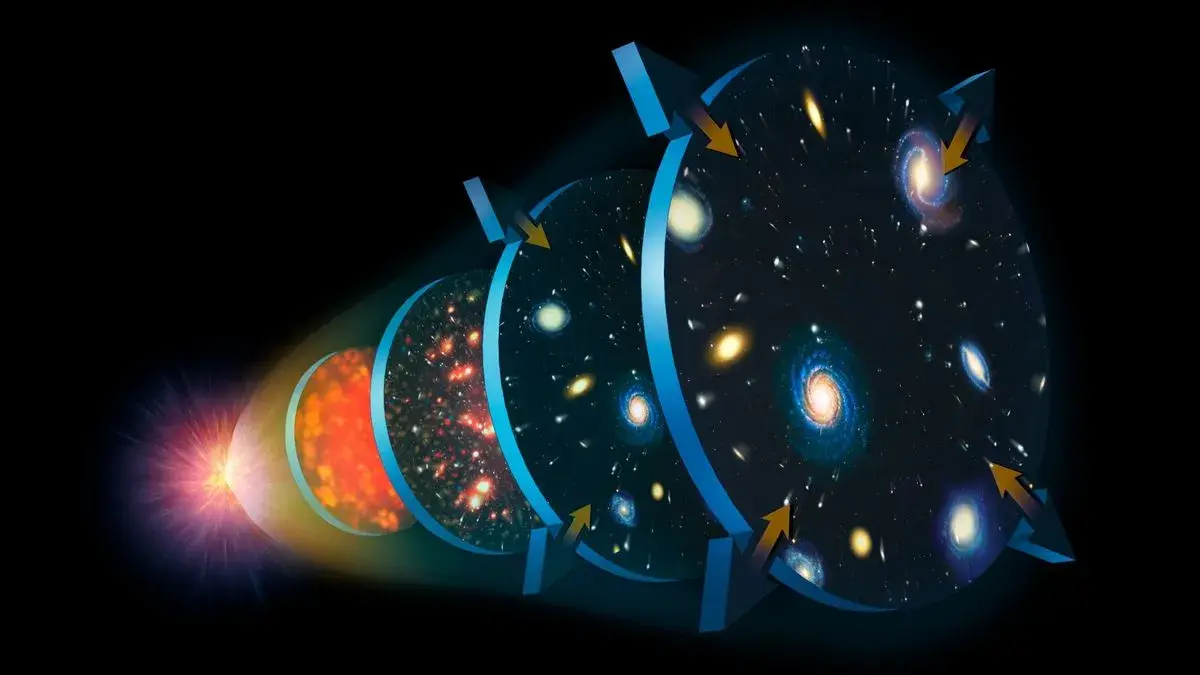Astronomers have used the James Webb and Hubble space telescopes to confirm one of the most troubling conundrums in all of physics — that the universe appears to be expanding at bafflingly different speeds depending on where we look.
This problem, known as the Hubble Tension, has the potential to alter or even upend cosmology altogether. In 2019, measurements by the Hubble Space Telescope confirmed the puzzle was real; in 2023, even more precise measurements from the James Webb Space Telescope (JWST) cemented the discrepancy.
Now, a triple-check by both telescopes working together appears to have put the possibility of any measurement error to bed for good. The study, published February 6 in the Astrophysical Journal Letters, suggests that there may be something seriously wrong with our understanding of the universe.



With the universe is not being locally real, and now this… Oh man. Exciting times for sure.
Yes, discovery is awesome, and this is some crazy shit— it’s just that I prefer that the the rules that govern time and space make sense, lol.
It makes sense — we just don’t understand it yet 😀
Fine
deleted by creator
I predict bubbles warping time but not space, thus distorting the apparent speeds of objects we see through them. Star Trek taught me that anything is possible. 😆
And just imagine the new fields of math such a discovery would create…
“I’m just going to round it anyways” - Engineering
The Intel floating-point math error strikes again.
If something warps time, doesn’t it inherently warp space, and vice versa?
Normally yes, but if an exception was found then that too would fundamentally change what we think we know. I doubt it will come down to anything quite that simple, but on the other hand gravity is one of those forces that we still don’t completely understand and when dealing with things on a galactic scale perhaps this new observation will start to crack open that particular mystery. It’s easy to speculate at this point, but really my hope is that this will lead to a better understanding of something huge. I think the most boring outcome of this would be something like “oops we made a mistake in our math.”
What do you mean by this?
This can explain it better than I’m able to:
https://www.scientificamerican.com/article/the-universe-is-not-locally-real-and-the-physics-nobel-prize-winners-proved-it/
Sometimes popular science goes a bit too far. Entanglement of particles and the fact that hidden variables don’t exist does not mean that stuff is not “real”. At least I feel that is abusing the word “real”.
Not following you. That’s literally what they awarded the Nobel for.
Well the link you just posted says they got the prize “for experiments with entangled photons, establishing the violation of Bell inequalities and pioneering quantum information science”. They didn’t get the prize for showing that “the universe is not locally real”. That’s just something the article makes up in the headline to draw readers in.
I mean I get it, it’s hard to make science exciting and you need a bit of flair but I feel sometimes it goes a bit too far and kinda gives people the wrong idea.
The magazine did not make up locality lol.
In theoretical physics, quantum nonlocality refers to the phenomenon by which the measurement statistics of a multipartite quantum system do not allow an interpretation with local realism.
They literally did prove, and was awarded for, showing that the universe is not locally real.
Edit. To be clearer, realism means
The word “real” and “locality” is not the same. The “lol” is unnecessary btw, there’s no need to try to ridicule me.
The magazine is taking a very technical term like “realism”, which means something specific in physics literature, and uses it in a headline and even just makes it “real”. The word “real” and “realism” is not the same. This goes into philosophy and not so much science.
Most people will read that as if reality is an illusion or some other nonsense like that. You can’t get to “the universe is not real” from what is actually said in the contents of the article.
A Wikipedia quote is not an argument btw.
EDIT to address your edit: you’ve hit the crux of the issue. That definition is not what most people think when they hear the word “real”.
I’m sorry you seem to be refusing to understand it. The science is real, well documented, and proven. Regardless of your opinion on it. I recommend reading more into it on your own time.
eli5 this universe not real thing. i can never wrap my head around it.
It’s as real as anything gets. What constitutes as “real” is more of a philosophy questions than physics question. Make up your own answer.